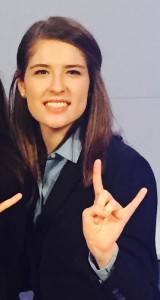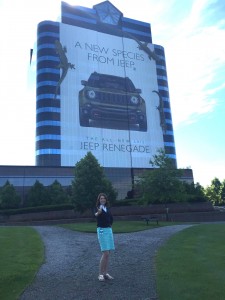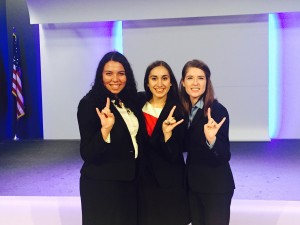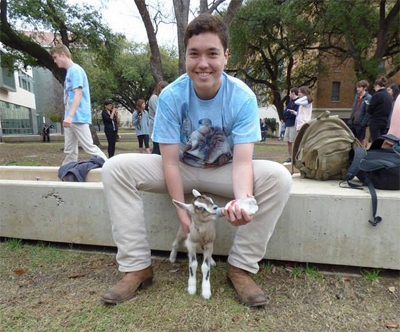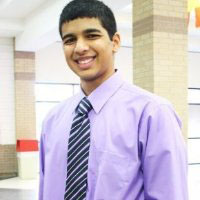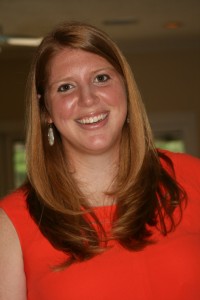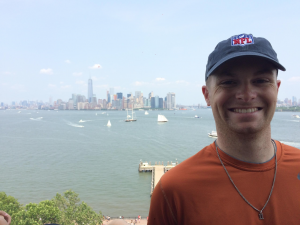 Where did you work and what was your title and department?
Where did you work and what was your title and department?
This summer, I interned with the NFL in the User Acquisition department. The department is part of the Digital Media group, and our products include Game Pass – an international subscription product featuring live games – fantasy football, and other digital subscription products. The head of my business unit was a BHP alum, which I did not know before starting there. Once we learned of each other, we were able to immediately connect on a more personal level, due to our BHP connection.
What did you expect to gain from your internship this past summer?
I expected to gain an understanding of how various departments all work together for league-wide success. I wanted to see how football operations interacted with digital media, accounting, sponsorship, legal, and all of the other departments around the league. Each piece is crucial to the success of the NFL and its 32 clubs, and I wanted to understand how the league operates. Additionally, I wanted to learn and develop a new skill set in digital media, as it was an area that I had never been fully exposed to.
Did the internship meet or supersede your expectations? How?
My internship definitely exceeded my expectations. While I aimed to learn as much as possible at the league level, I gained a broader understanding in many different functional skill sets in digital, marketing, and branding. I had never worked in a digital media role before, and I was challenged with a new task each and every day.
Each week the interns interacted with a different department through presentations that showed insight into various pieces of the business and how they fit together to form the NFL and serve the 32 clubs for the ultimate benefit of the fan. My department constantly worked with other teams, so I was able to gain insights from other departments into how and why they perform the functions that they do.
Tell me about an interesting encounter you had during your internship.
During my internship, I took advantage of many external opportunities and events, which I would highly recommend regardless of your interests. As someone who intends to enter the sports industry post-graduation, I attended various sporting events during my time off of work. I visited Yankee Stadium, Citi Field, Camden Yards, and Citizens Bank Ballpark. At each stadium, I walked around to experience the different features of the ballpark, and I paid close attention to the little things – ballpark layout, game presentation, sponsorship activation, concession options, and many others.
While I was not “working” at that time, I was adding to my knowledge base within the industry and will be able to share my takeaways from each in the future. As a sports fan, I attended the Belmont Stakes and witnessed American Pharoah win the first Triple Crown in the last 37 years, which was truly a once in a lifetime experience.
Sharing that moment with 90,000 screaming sports fans to root American Pharoah to the finish line is something that I have never experienced before and will never forget. Additionally, I witnessed Alex Rodriguez’s 3000th career hit, a feat that has only occurred 29 times in MLB history.
Ultimately, the important piece is to truly utilize all of the resources and opportunities that are around you during the internship – both on the clock and off.
What did you learn about yourself that you did not know before?
I learned how much I enjoy strategy and understanding why things are done a certain way. I like to set (or help to set) the vision and strategy for an organization, department, or product. Then, I like to put the vision into practice and execute it. I am very curious and always seeking to learn something new, and that did not change during my internship. I asked questions and read frequently to better understand the landscape and why we did things a certain way. I searched for opportunities to provide a better product for our fans, both domestically and internationally.
What did you contribute to the company?
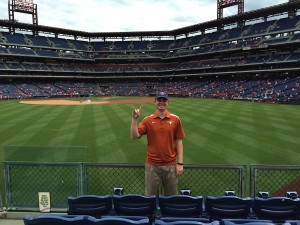
During my time at the NFL, I worked on a variety of different projects. My workload changed daily as new projects came on board. I developed new recruiting materials, created tracking links for our affiliate program, and provided growth opportunities in international markets. I wrote a sizzle reel commercial to communicate product value and grow the reach of the NFL internationally. I worked on our marketing plans for this season and consolidated research on our fans in core international markets. In short, I worked on a variety of different projects and brought my perspective to the table in every discussion.
What advice do you have for other students who are recruiting for internships?
Make sure to take advantage of the opportunity that you have been given. Take the time to get to know others on your team, as well as from other departments that seem interesting to you. One of my favorite parts of my internship was the opportunity to interact with others around the league, as I enjoy learning from other people’s experiences. Others in the office are willing and eager to talk to you, especially when you take the initiative to reach out to them in a respectful way. Look for new opportunities for your team and provide a new perspective to the group, as you never know where it could lead.

